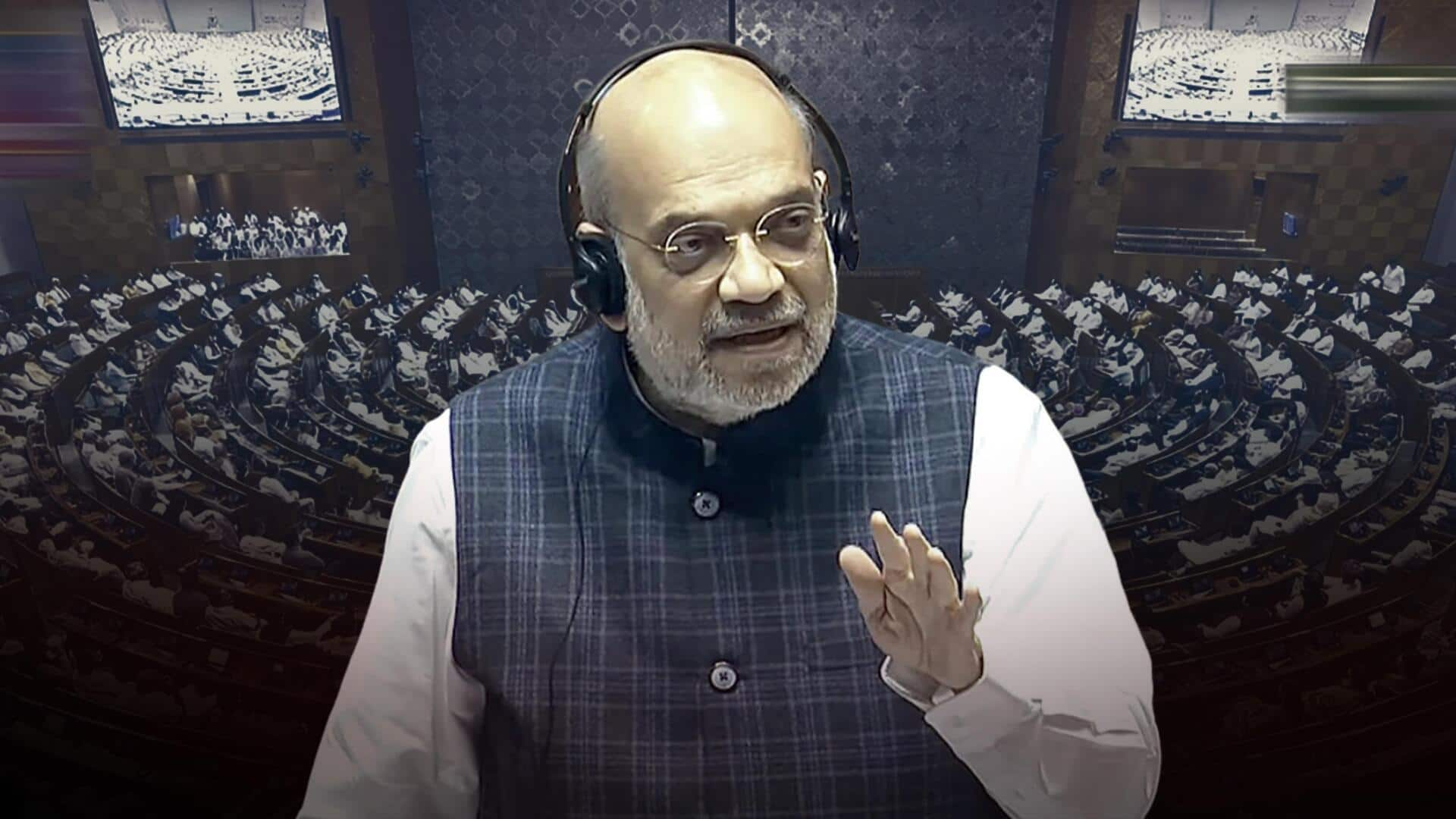
Lok Sabha discusses criminal law bills amid opposition absence
What's the story
Even as two-thirds of opposition members remain suspended from the Lok Sabha, the Centre on Tuesday took up three bills for discussion, which—if passed—will replace the existing criminal laws. The Bharatiya Nyaya Sanhita, Bharatiya Nagarik Suraksha Sanhita, and Bharatiya Sakshya Adhiniyam bills aim to replace the Indian Penal Code, 1860, the Code of Criminal Procedure Act, 1973, and the Indian Evidence Act, 1872, respectively. Opposition parties have accused the government of trying to "bulldoze" important legislation without proper debate.
Context
Why does this story matter?
First introduced in August, the bills later underwent a review by the Parliamentary Standing Committee on Home Affairs. Last week, they were withdrawn, and revised editions were tabled in the Lok Sabha by Union Home Minister Amit Shah. They have now been brought forth for discussion in the Lower House amid the absence of the majority of opposition leaders. Earlier on Tuesday, 49 opposition MPs were suspended from the Lok Sabha, pushing the total Parliament Winter Session suspensions to 142.
Details
Most draconian law, says opposition leader
Suspended Congress MP Manish Tewari claimed the government had delegitimized the Parliament. Referring to the bills, he accused the Centre of creating "the framework of passing the most draconian law in Parliament, which will turn this country into a police state." Fellow suspended Congress MP Shashi Tharoor argued the government was creating an opposition-free Lok Sabha with "no respect for parliamentary democracy." Their colleague Randeep Surjewala also accused the government of avoiding discussions on laws that hold them accountable.
What Next?
Government's stand on proposed criminal laws
The government has said the proposed criminal laws are people-centric and designed to protect citizens' rights. Shah earlier stated that, unlike British-era laws, these three criminal law bills focus on providing justice rather than punishment. They include a broader definition of terrorism, besides the addition of "economic security." Shah rejected the Congress's Lok Sabha leader Adhir Ranjan Chowdhury's request to refer the bills to a joint select committee, citing the Parliamentary Standing Committee on Home Affairs had already reviewed them.
Insights
Opposition's call for consensus on bills
Opposition parties—including the Congress, and the Trinamool Congress (TMC)—argue many sections of the bills are copied from old laws, maintaining the "colonial flavor" the government claims it wants to eliminate. They said these bills should be addressed after the 2024 Lok Sabha elections. West Bengal Chief Minister Mamata Banerjee wrote to Shah last month, urging him not to rush the proposed laws. She asked him to first build consensus on the same as they have significant implications for India's polity.
Opposition
IPC replacement bill omits section criminalizing non-consensual homosexual acts
The proposed laws completely omit Section 377 of the IPC, mandate forensic investigation in cases involving punishments over seven years, and bring electronic evidence under the primary evidence category, among other provisions. Notably, Section 377 could be used to prosecute the rape of men, but its deletion from the proposed IPC replacement law has created a loophole. Meanwhile, a new offense of the "terrorist act" has also been introduced, which wasn't covered under the IPC.